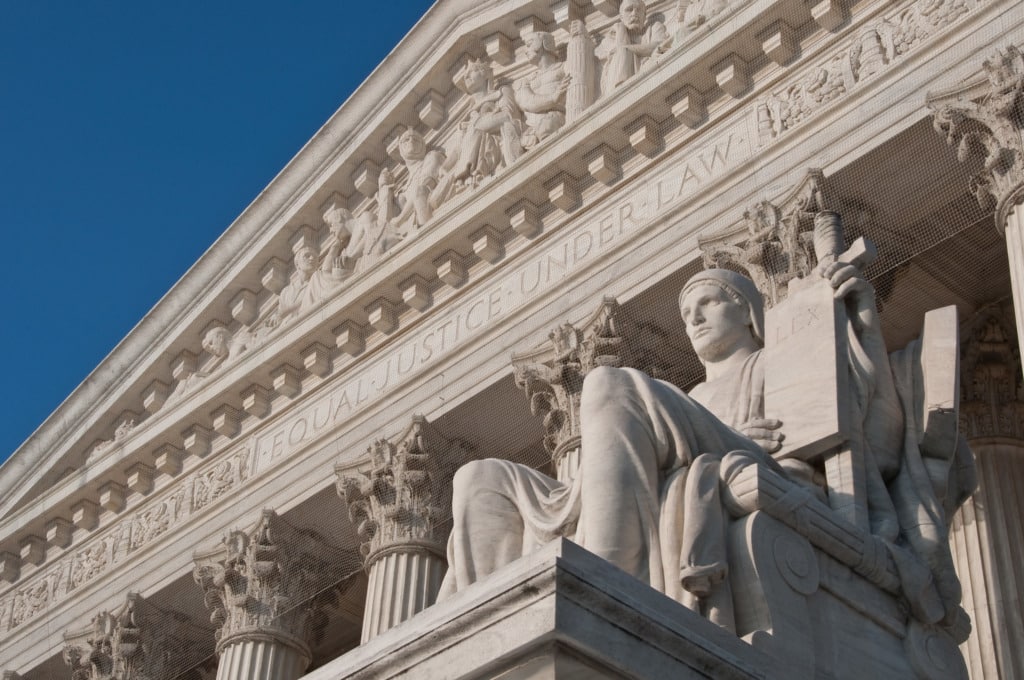Supreme Court Narrows the FSIA’s Expropriation Exception (Again)
(Editor’s Note: This article also appears in Just Security.) Last Friday, the U.S. Supreme Court decided Republic of Hungary v. Simon. Writing for a unanimous Court, Justice Sonia Sotomayor held that commingling the proceeds of expropriated property with other government funds, which are then used for commercial activity in the United States, is not enough…
Continue ReadingCC/Devas (Mauritius) Limited v. Antrix Corp.: International Arbitration and Constitutional Avoidance
I suspect that CC/Devas (Mauritius) Limited v. Antrix Corp. Ltd. caught the eye of the Supreme Court because of an interesting constitutional question: Does the Due Process Clause of the Fifth Amendment apply in civil suits brought against foreign states in U.S. courts? More than thirty years ago, Justice Scalia, writing for a unanimous Court…
Continue ReadingSupreme Court CVSGs in Terrorism Case
On January 13, 2025, the Supreme Court called for the views of the Solicitor General in Borochov v. Islamic Republic of Iran. (This is commonly known as a “CVSG.”) The question presented is whether the Foreign Sovereign Immunities Act’s (FSIA) exception for state sponsors of terrorism, 28 U.S.C. § 1605A, extends to cases in which…
Continue ReadingCassirer Plaintiffs Ask Supreme Court to GVR
On Friday, the plaintiffs in Cassirer v. Thyssen-Bornemisza Collection Foundation filed a cert petition asking the Supreme Court to grant, vacate, and remand (GVR) the Ninth Circuit’s decision in light of new California legislation mandating the application of California law to the merits of the case. It would be standard practice for the Court to…
Continue ReadingHungary v. Simon Offers Supreme Court Stark Choice
(Editor’s Note: This article also appears in Just Security.) On Tuesday, the U.S. Supreme Court heard oral argument in Hungary v. Simon, a case brought by Holocaust survivors under the expropriation exception of the Foreign Sovereign Immunities Act (FSIA). In 1944, Hungary rounded up Jews and transported them by train to death camps, expropriating their property…
Continue ReadingWhat Deference to the Executive in Halkbank Should Have Looked Like
As previously reported, the Second Circuit issued its opinion in United States v. Turkiye Halk Bankasi (Halkbank) on October 22, 2024, addressing the deference owed to the executive branch’s determination that Halkbank, a Turkish state-owned bank, is not immune from criminal prosecution for violating U.S. sanctions on Iran. Similar questions of deference to the executive…
Continue ReadingSecond Circuit Holds for the Government in Halkbank Remand
The U.S. Court of Appeals for the Second Circuit has issued its opinion in U.S. v. Turkiye Halk Bankasi (Halkbank) following the Supreme Court’s decision to remand the case for further consideration of common law immunity issues. The same panel of Second Circuit judges held for the government the first time it heard the case…
Continue ReadingU.S. and Foreign Litigation Relating to the Events in Gaza
High profile cases against Israel and Germany have been bought before the International Court of Justice, alleging violations of international law with respect to events in Gaza following the October 7, 2023, attacks by Hamas. The prosecutor of the International Criminal Court is seeking five warrants of arrest against Israelis and Hamas leaders for war…
Continue ReadingTransnational Litigation at the Supreme Court, October Term 2024
Today is the first day of the Supreme Court’s October Term. This post briefly discusses four transnational litigation cases in which the Court has already granted cert, as well as several others that are in the pipeline and could be decided this Term. Readers can also consult our Supreme Court page. Cases in which the…
Continue ReadingDoes the New York Convention Apply to Investor-State Awards?
On August 9, 2024, in Zhongshan Fucheng Industrial Investment Co. v. Federal Republic of Nigeria, the D.C. Circuit held that Nigeria was not immune from suit to enforce an arbitral award for a Chinese investor under a bilateral investment treaty. The U.S. Foreign Sovereign Immunities Act (FSIA) has an exception to state immunity for actions…
Continue Reading








